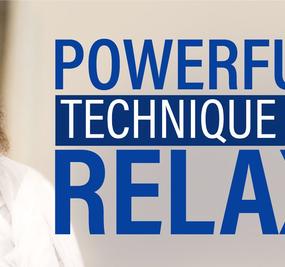Introduction
Anxiety at work can be a common issue that many individuals face in their professional lives. The fast-paced nature of the modern workplace, coupled with high expectations and constant pressure, can contribute to feelings of stress and anxiety. However, there are strategies that can help create a stress-free environment, allowing individuals to thrive and excel in their careers. In this article, we will explore effective strategies and techniques to manage anxiety at work and foster a positive work environment.
Understanding Anxiety at Work
Before we delve into the strategies to alleviate anxiety at work, it is essential to understand what causes this condition. Anxiety at work can stem from various factors, such as:
- Workload: Overwhelming workloads and tight deadlines can induce stress and anxiety.
- Lack of Control: Feeling a lack of control over one’s work or environment can lead to heightened anxiety levels.
- Interpersonal Conflicts: Difficult relationships with colleagues or superiors can contribute to workplace anxiety.
- Performance Pressure: The fear of not meeting expectations or underperforming can be a significant source of stress.
- Uncertainty: Job insecurity or ambiguity about the future can trigger anxiety.
By recognizing these underlying causes, individuals and organizations can implement strategies to address and minimize anxiety at work.
Strategies for a Stress-Free Environment
Foster a Supportive Work Culture
A positive and supportive work culture plays a crucial role in reducing anxiety levels among employees. Employers should encourage open communication, provide regular feedback, and create an atmosphere where employees feel comfortable seeking help or discussing their concerns. Building a sense of camaraderie and teamwork can help alleviate stress and promote a stress-free environment.
Set Realistic Goals and Expectations
Unrealistic goals and expectations can significantly contribute to anxiety at work. Employers should work closely with their employees to establish clear, attainable goals that align with their capabilities. By setting realistic expectations, employees can feel a sense of accomplishment and reduce anxiety associated with overwhelming tasks.
Encourage Work-Life Balance
Maintaining a healthy work-life balance is essential for overall well-being and minimizing workplace anxiety. Employers can promote work-life balance by offering flexible working hours, encouraging breaks, and discouraging excessive overtime. Additionally, providing resources and support for personal and family commitments can help employees manage their responsibilities effectively, reducing stress and anxiety.
Provide Stress Management Resources
Organizations can implement stress management resources, such as wellness programs, counseling services, or mindfulness workshops. These initiatives can equip employees with coping mechanisms to handle stress and anxiety effectively. By investing in employees’ mental well-being, organizations create a supportive environment that values their overall health and happiness.
Promote Physical Activity
Regular physical activity has been proven to reduce anxiety and stress levels. Employers can encourage physical activity by offering fitness programs, organizing team-building activities, or providing access to gym facilities. Physical exercise not only improves mental health but also enhances productivity and focus, leading to a stress-free work environment.
Implement Time Management Strategies
Effective time management can alleviate work-related stress and anxiety. Employers can promote time management techniques such as prioritization, delegation, and setting realistic deadlines. Encouraging employees to utilize productivity tools and techniques can help them manage their workload efficiently, reducing anxiety and promoting a healthy work environment.
Conclusion
Anxiety at work is a prevalent issue that can negatively impact individuals’ well-being and job performance. By implementing the strategies mentioned in this article, both employees and employers can create a stress-free environment that promotes productivity, satisfaction, and overall mental health. Prioritizing work-life balance, fostering a supportive culture, and providing resources for stress management are vital steps towards mitigating anxiety at work. Remember, a stress-free work environment not only benefits individuals but also contributes to the overall success of an organization.




















